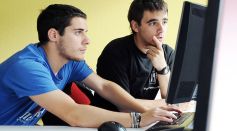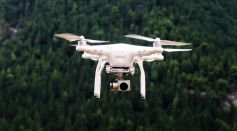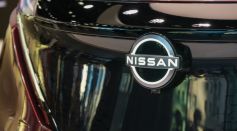TECH & INNOVATION

Two Mysterious Voids Hiding Inside the Great Pyramid of Giza; Powerful Cosmic Ray Scan Reveals

MorphFace Robots with Realistic Pain Expression for Reduced Errors, Bias by Doctors Developed

Snake-Like Robot Designed for the Moon; 13 Students Develop COBRA to Search for Lunar Water

Drones, Artificial Intelligence Successfully Recovered Fallen Meteorite in Australia For the First Time

Satellite Images Reveal Arctic Sea Ice Lost 16% of Thickness in Three Years Due to Greenhouse Gas Emissions

Shape-Shifting Robots Wrapped in Active Matter Will Be More Flexible

Coding Playground Helps Children to Exercise Values, Skills Missed in Online Classes

Human Composting Facility Turns A Person's Remains Into Soil: Here's How they Do It

Robot Expressing Emotion While Reading Text Messages? Scientists Invent a Device That May Help Enhance Social Interactions

Nissan Designs Automated Mini Car That Runs Steadily Across the Table to Deliver A Bowl of Ramen With No Spillage

SpaceWorks Presents Big Ideas at Big Sky

Russia Exposes 30 Biological Labs in Ukraine Allegedly Involved in Bioweapons Production; US Contradicts Claim

Startup Energy Company Plans to Drill the Deepest Hole Into Earth's Crust to Unleash Limitless Power

COVID-19 Pandemic Prompts Apple to Enhance Security Features, iPhone Face ID Now Unlocks While Wearing Face Mask
Most Popular

Ancient Interbreeding Between Neanderthals and Modern Humans Revealed

'Forever Chemicals' PFNA and PFOSA to Faster Biological Aging in Middle-Aged Men, Study Finds

Why Matter Exists Instead of Nothing: Exploring the Universe's Mystery of Matter vs Antimatter

PETA Condemns Viral Baby Monkey Punch's Zoo Conditions As IKEA's Stuffed Orangutan Toy Sells Out





